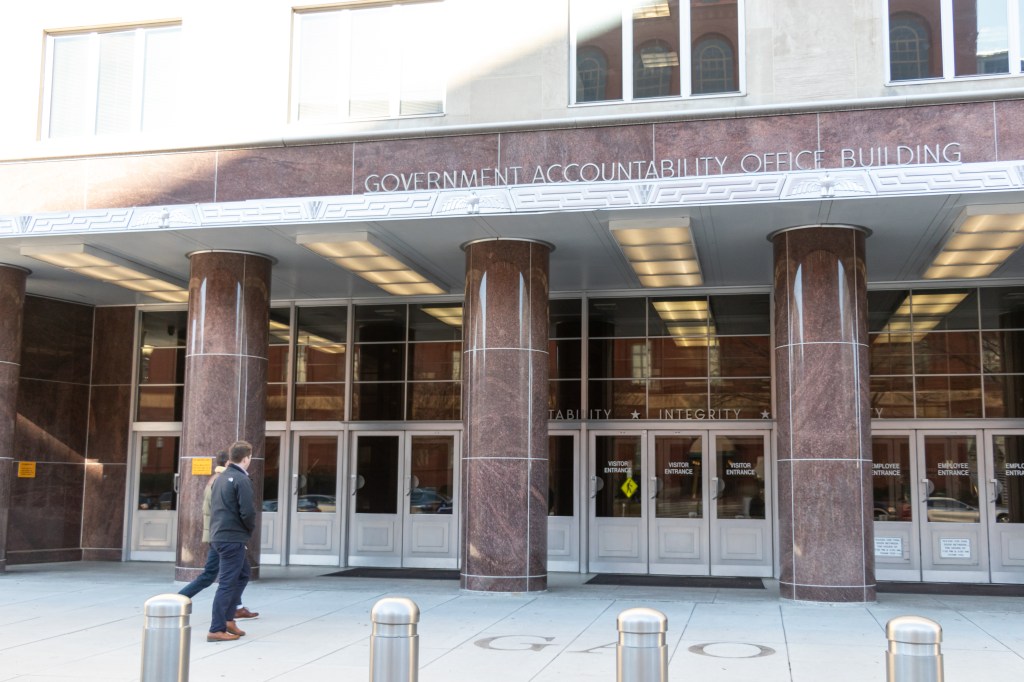About Us

About the California State Auditor
Nonpartisan analyses for California’s policymakers to improve programs and services for all Californians.
Our office evaluates complex problems and recommends actionable solutions to help government provide efficient and equitable access to services for all Californians.

Our work is independent, nonpartisan, and results directly from the facts and data we collect.
When decision-makers act on our recommendations, real change happens. Because of our work, children have improved access to preventive health care, more California students are protected at our institutions of higher learning, there’s increased accountability in the spending of public funds, and small businesses can count on more fair equitable protections for California’s growing cannabis industry.
How Our Work Begins
Our audits and investigations are launched from different sources.
The Legislature
Legislators concerned about a program or agency can request a performance/policy evaluation through the bipartisan Joint Legislative Audit Committee (JLAC). The California State Auditor’s Office is involved from the beginning of this process. We review a legislator’s request for an audit and are available to answer questions when the request is formally made to JLAC. You can find more information on the JLAC audit request process on their Frequently Asked Questions website.
If JLAC approves the request, our audit work begins. In this phase of the process, we gather the facts and dive into the details. Once we have analyzed all the evidence, we issue a public report. Everything we do is confidential until we publish our final report.
After we publish our reports, the Legislature may hold hearings and pass legislation to address the weaknesses we identified.
Whistleblower Complaints
The California Whistleblower Protection Act authorizes the California State Auditor to receive complaints from state employees and members of the public who wish to report improper state government activity. Our office works diligently to investigate claims of fraud, waste, and abuse of taxpayer funds, and provide recommendations to agencies to remedy these issues. All investigations are completely confidential unless the California State Auditor issues a public report.
For more on this process visit our Whistleblower webpage and be sure to check out our Whistleblower Frequently Asked Questions.
State Laws
The California Legislature may pass legislation requiring the California State Auditor’s Office to conduct audits of programs, agencies, and governments, either on a one-time basis or continually. Examples of this legisation:
- Alternative Whistleblower System Regulations: 2 CCR § 61300-61320
- Redistricting Regulations: 2 CCR § 60800-60863
- State High Risk Program: 2 CCR § 61000-61024
- Local Government High Risk Program: 2 CCR § 61100-61140
California Healthcare, Research, and Prevention Tobacco Tax Act of 2016: 2 CCR § 61200-61240
High-Risk Issues
As required by Government Code section 8546.5, our office operates the High-Risk program to improve the operation of state government. We identify, audit, and recommend improvements to state agencies and statewide issues at high risk for waste, fraud, abuse, or mismanagement, or for having major challenges associated with their economy, efficiency, or effectiveness. Some current issues include state management of COVID-19 federal funds, water infrastructure, and information security. See the California State Auditor’s latest 2025 High-Risk report.
Areas of Expertise
Looking for a job with the California State Auditor?
Performance & Policy Evaluations
As part of performance/policy evaluations—also known as performance audits—we collect evidence and find the truth. We use that truth to craft recommendations so that those in power can best serve the people they represent. Performance/policy evaluations involve systematically comparing what should be happening to what is happening. Our analyses and recommendations are objective, independent, nonpartisan, and based on evidence. We ultimately determine whether government agencies are efficient, effective, fulfilling their missions, and complying with the law. Our office is also responsible for audits that are mandated by state law, such as our annual review of the state judicial system.
Investigations into Improper Governmental Activities
If state agencies or employees are acting improperly, our team investigates them and develops reports to hold them accountable. Under the California Whistleblower Protection Act, we determine whether allegations of improper governmental activities are true and follow up to make sure they implement our recommendations for corrective action. We conduct investigations in response to complaints received from state employees, members of the public, or on our own initiative. We receive complaints by telephone, mail, fax, and through this website. Complainants have a right to remain confidential. More information can be found on our Whistleblower Hotline webpage
Financial & Compliance Audits
With billions of dollars in federal funding on the line, determining whether California’s financial statements are presented fairly is critical work. Each year, our staff conducts our annual audit of the State’s financial statements to ensure that California can receive funding that supports infrastructure, schools, and other public services. This audit—known as the Single Audit—is among the largest in the world and encompasses our evaluation of California’s financial statements, financial reporting safeguards, and compliance with laws, rules, and requirements. It satisfies the federal requirements for an independent financial audit and reviews the State’s compliance with federal program requirements.
Data Analytics
Our data analysts delve into large datasets to provide easily understood and visualized analyses to auditors, the Legislature, and the public. Our office can quickly clean and synthesize data to point in the right direction to address problems facing Californians.
State High-Risk Program
We investigate statewide issues and improve the operation of state government by identifying, auditing, and recommending improvements. We target state programs at high risk for waste, fraud, abuse, or mismanagement. We also audit programs experiencing major challenges associated with their economy, efficiency, or effectiveness.
Our Mission, Authority, & Standards
1
Our Mission
Our mission is to provide objective evaluations and effective solutions that enhance the transparency, accountability, and performance of California government for the people it serves. We follow the highest standards to provide stakeholders with reliable answers to problems in California government. We gather evidence to understand what an agency or program is meant to achieve, to determine whether it is falling short, and articulate what performance means for the people it serves.
2
Our Authority
State laws mandate our office be independent of the executive branch and legislative control. The California State Auditor is the only entity that has, by statute, full access to all records, accounts, correspondence, property, and other files of any publicly created entity, including state agencies, cities, counties, school districts, and special districts.
3
Our Standards
The California State Auditor’s Office conducts all performance and policy evaluations—also known as performance audits—in accordance with audit standards issued by the U.S. Comptroller General’s Government Accountability Office (GAO), including standards that we must follow as an independent auditor. To preserve the independence of our office and to ensure the receipt of federal funds, state law requires the State Auditor to follow those standards that explicitly free the auditor from control by the executive branch.
Awards & Recognition
2023
NSAA Excellence in Accountability Award
The National State Auditors Association (NSAA) selected the California Hospice Licensure and Oversight: The State’s Weak Oversight of Hospice Agencies Has Created Opportunities for Large-Scale Fraud and Abuse audit for the 2023 NSAA “Excellence in Accountability Award.” Each year the NSAA recognizes the best performance audit (nationally) in various categories, including performance audits.The award was presented to representatives from our office at the 2023 NSAA Annual Conference in June.
2022
NSAA Excellence in Accountability Award
The National State Auditors Association (NSAA) selected Employment Development Department: Significant Weaknesses in EDD’s Approach to Fraud Prevention Have Led to Billions of Dollars in Improper Benefit Payments (Report #2020-628.2, January 28, 2021) as the 2022 NSAA Excellence in Accountability Award for a small performance audit. Each year the NSAA recognizes the best performance audit (nationally) in various categories, including performance audits. The award was presented to representatives from our office at the 2022 NSAA Annual Conference in June.
2021
Gold Stevie Award for Government/Non-Profit Organization of the Year
In August 2021, the International Business Awards recognized the California State Auditor with a Gold Stevie Award as the best medium-sized government/non-profit organization of the year. The 2021 International Business Awards received over 3,700 entries from organizations in 63 nations and territories. Stevie Award winners were determined by the average scores of more than 260 executives worldwide who participated in the judging process from June through early August. The judges stated, “The California State Auditor has continued a high level of ongoing, focused growth.”
Certificate of Impact
Each year the National Legislative Program Evaluation Society (NLPES) recognizes reports, issued during the previous two years, in the field of legislative program evaluation that led to program improvements, dollar savings, and positive changes on public policy. The audits listed below were recognized by NLPES as having demonstrated significant impacts on state operations.
2025
California’s Systems of Public Higher Education
Streamlining the Community College Transfer Process Could Increase Access to Bachelor’s Degrees (Report 2023-123, Sept. 24, 2024)
2024
California State University
It Did Not Adequately or Consistently Address Some Allegations of Sexual Harassment (Report 2022-109, July 18, 2023)
2023
Employment Development Department
Significant Weaknesses in EDD’s Approach to Fraud Prevention Have Led to Billions of Dollars in Improper Benefit Payments (Report #2020-628.2, Jan. 28, 2022)
2022
Childhood Lead Levels
Millions of Children in Medi-Cal Have Not Received Required Testing for Lead Poisoning (Report #2019-105, Jan. 7, 2021)
2021
K-12 Local Control Funding
The State’s Approach Has Not Ensured That Significant Funding Is Benefiting Students as Intended to Close Achievement Gaps (Report #2019-101, Nov. 5, 2019)
2019
Homelessness in California
Homelessness in California: State Government and the Los Angeles Homeless Services Authority Need to Strengthen Their Efforts to Address Homelessness (Report #2017-112, April 19, 2018)
2018
Department of Motor Vehicles
Department of Motor Vehicles: Administrative and Statutory Changes Will Improve Its Ability to Detect and Deter Misuse of Disabled Person Parking Placards (Report #2016-121, April 18, 2017)

Peer Review Results
Each audit organization performing audits in accordance with generally accepted government auditing standards must have an external peer review performed by reviewers independent of the audit organization being reviewed at least once every three years.
The California State Auditor’s Office received its last peer review in 2023, you may find the latest results in the 2023 report.
Tobacco Tax Funds Received
The California State Auditor’s Office receives up to $400,000 annually from the California Healthcare, Research and Prevention Tobacco Tax Act of 2016 Fund (funds) to reimburse the cost of conducting audit work on a biennial basis of the state and local agencies’ use of fund money. (Rev. & Tax. Code, §§ 30130.56 and 30130.57.) The table below presents a summary of the funds that our office received and spent since fiscal year 2017-2018, as required by Revenue and Taxation Code section 30130.56, subdivision (c).
| Fiscal Year | Amount Received | Amount Spent | Activity |
|---|---|---|---|
| 2017-2018 | $400,000.00 | $0 | Incurred no expenses—returned amount to the Department of Finance.* |
| 2018-2019 | $400,000.00 | $0 | Incurred no expenses—returned amount to the Department of Finance.* |
| 2019-2020 | $321,408.95 | $321,408.95 | Audit 2019-046 |
| 2020-2021 | $400,000.00 | $400,000.00 | Audit 2019-046 |
| 2021-2022 | $400,000.00 | $215,966.25 | Audit 2021-046 |
| 2022-2023 | $400,000.00 | $428,388.25 | Audit 2021-046 |
| 2023-2024 | $400,000.00 | $109,440.00 | Audit 2023-046 |
| 2024-2025** | $0 | $503,370.00 | Audit 2023-046 |
**Fiscal Year 2024-25 – No funds requested, balance to be paid from FY 2021-22 and FY 2023-24 excess funds and the State Audit Fund.